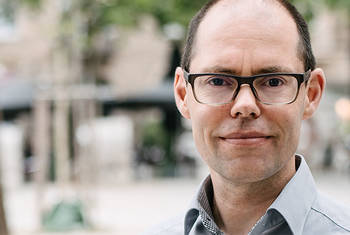Bas Jacobs Should Governments Apply a Correction for the Cost of Taxation in Social Cost Benefit Analysis?
Bas Jacobs is the Sijbren Cnossen Professor of Public Economics at Erasmus University, Rotterdam where he is Academic Director of the Executive and Master Programs in Policy Economics. Willem Duisenberg Fellow at the Netherlands Institute for Advanced Study in 2018-19, Jacobs has previously held visiting scholarships at Oxford University, the University of California, Berkeley and the International Monetary Fund. His main research interests include public finance, macroeconomics, economic policy and human capital. An authoritative voice on economic matters in the Dutch media, Jacobs was a recipient of the IIPF Young Economists Award in 2013.
Area of Research
Public Finance, Optimal Taxation, Welfare Economics, Macroeconomics, Human Capital Theory and Labor Cconomics.
since 2007
Professor of Economics and Public Finance
Erasmus University Rotterdam
Erasmus School of Economics
since 2017
Academic Director, Executive Program Policy Economics
Erasmus University Rotterdam
Erasmus School of Economics
since 2012
Founder and Academic Director of the Master Program in Policy Economics
Erasmus University Rotterdam
Erasmus School of Economics
2005-2007
Assistant Professor
University of Amsterdam
2005-2007
Assistant Professor
Tilburg University
2002-2005
Post–Doc Researcher
University of Amsterdam
NWO Priority Program ‘Scholar’, Department of Economics
1997-2002
Ph.D. in Economics
University of Amsterdam
- American Economic Review, American Economic Journal – Macroeconomics, B.E. Journal of Theoretical Economics, Canadian Journal of Economics, Economics Letters, Economics of Education Review, CESifo Economic Studies, De Economist
- Econonomics of Education Review, European Journal of Political Economy, FinanzArchiv, German Economic Review, International Economic Review, International Review of Environmental and Resource Economics
- International Tax and Public Finance, Journal of Economic Dynamics and Control, IZA Journal of Labor Economics, Journal of Economic Inequality, Journal of Economics
- Journal of the European Economic Association, Journal of Human Capital, Journal of Macroeconomics, Journal of Political Economy, Journal of Public Economics, Journal of Public Economic Theory
- Labour Economics, National Tax Journal, Public Finance Review, Review of Economic Studies, Scandinavian Journal of Economics, Social Choice and Welfare
- President of the Royal Netherlands Economics Association (since 2014)
- Coordinator NCA-ESE Honours Class in Public Finance at Erasmus School of Economics and The Netherlands Court of Audit (since 2017)
- Member of the advisory board of the Norwegian Center of Taxation, (since 2013)
- Member of the board of management of the International Institute for Public Finance (since 2015)
- Member of the Scientific Board of the congresses of the European Economic Association (2012, 2009, 2008, 2007)
Prizes
- IIPF Young Economist Award for “Optimal Redistribution and Monitoring of Ability” (joint with Floris Zoutman) for best paper of economists under 40 at the IIPF Conference (2013)
- Visibility Award for the best contribution to the visibility and reputation of the Erasmus School of Economics (2011, 2014)
- H.K. Nieuwenhuis Prize for best master’s thesis of the Department of Economics, Universiteit van Amsterdam. (1998)
Fellowships
- Willem Duisenberg Fellow, Netherlands Institute for Advanced Studies, Amsterdam (2018-2019)
- Fellow of Netspar (since 2005)
- Fellow of CESifo since September (2006)
- Fellow of CentER (2005-2007)
- Jean Monet Fellowship, European University Institute (2004-2005)
- NWO Open Competition Grant for research proposal “An Empirical and Applied General Equilibrium Analysis of Capital Income Taxation in the Netherlands”
- Vidi Grant of the Dutch Scientific Organization (NWO) for excellent young scientists with research proposal “Skill Formation in Distorted Labor Markets”
Distortionary costs of taxation refer to things like individuals’ reluctance to work or invest more as a result of governments raising taxes. In this video, BAS JACOBS considers whether governments should apply a correction for such costs of taxation in social benefit cost analyses. Applying the optimal taxation model, Jacobs notes that the distributional benefits of public investment in projects like bridges or swimming pools are often neglected by economists. He argues that there is no need to correct social cost benefits for the distortions of taxation because they are compensated by distributional benefits. Concluding that more public projects would be likely to be approved under this reasoning, Jacobs also makes a persuasive case for its relevance to other branches of public economics.
LT Video Publication DOI: https://doi.org/10.21036/LTPUB10735
The Marginal Cost of Public Funds Is One at the Optimal Tax System
- Bas Jacobs
- International Tax and Public Finance
- Published in 2018






